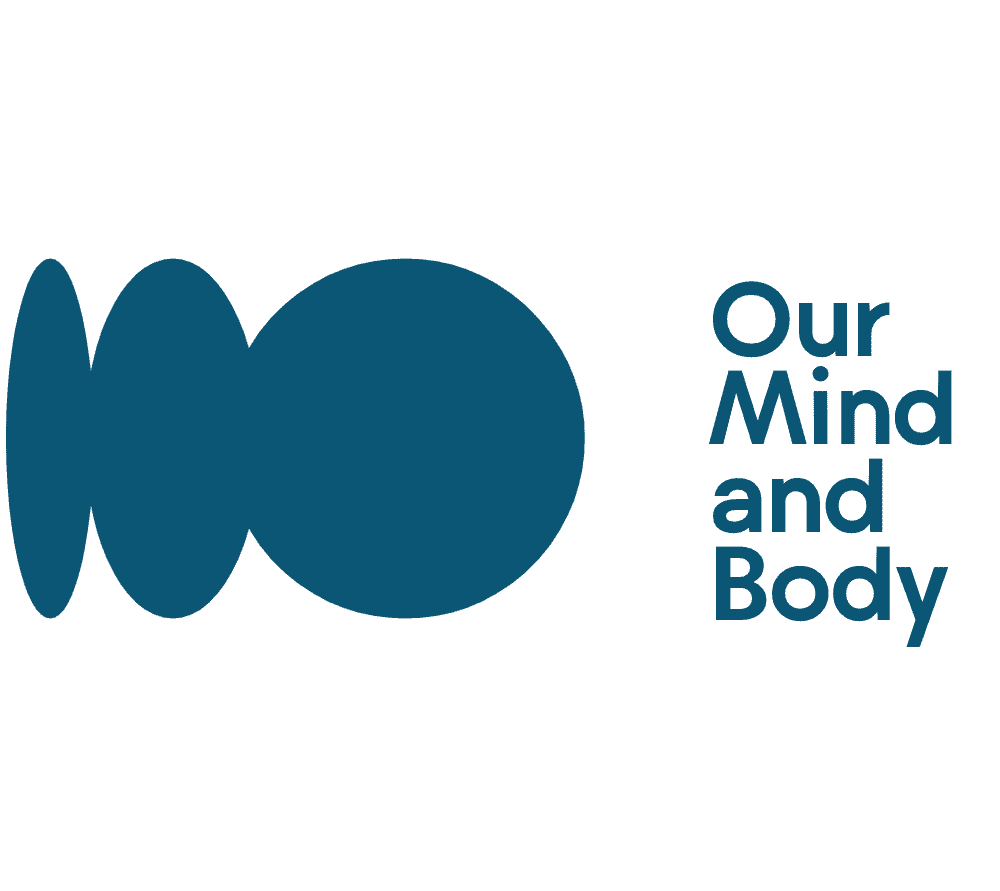Meditation
Relaxation Techniques: Boosting Health And Reducing Stress

Do you ever find yourself feeling swamped by the pressures of everyday existence? I certainly feel that way.
That’s why I’ve discovered the power of relaxation techniques for boosting my health and reducing stress. These techniques have been proven to have countless benefits, from improving mental health to reducing the risk of chronic diseases.
In this article, I’ll share with you some of the most effective relaxation techniques that you can easily incorporate into your daily routine.
So, let’s dive in and discover the secrets to a healthier, stress-free life.
Key Takeaways
- Relaxation techniques can have a significant impact on reducing stress and improving overall health.
- Meditation is a powerful tool for boosting mental health, reducing anxiety, and improving immune system function.
- Practicing gratitude and reflecting on what makes you happy can help reduce stress.
- Physical relaxation techniques such as deep breathing exercises, progressive muscle relaxation, and exercise can promote relaxation and alleviate symptoms of depression and stress.
Why Relaxation is Important
Relaxation techniques are important because they can reduce stress and improve overall health. This is evidenced by the benefits of meditation, deep breathing exercises, and physical activities like yoga and exercise.
When we are stressed, our bodies release stress hormones that can have negative effects on our cardiovascular system, cognitive function, and overall wellbeing. By practicing relaxation techniques, such as meditation, we can activate the relaxation response and counteract the effects of stress.
Deep breathing exercises help to calm the mind and body. They provide a simple yet effective way to relax and reduce stress levels.
Physical activities like yoga and exercise release endorphins, which improve mood and alleviate symptoms of depression and stress. These activities also help to improve flexibility, strength, and overall physical health.
By incorporating these techniques into our daily routine, we can experience the long-term health benefits and enjoy a more relaxed and balanced life.
Benefits of Relaxation Techniques
Meditation has been proven to improve long-term mental and physical wellbeing. It is a powerful relaxation technique that can positively impact our overall health.
Studies have shown that regular meditation can reduce symptoms of depression, anxiety, and other mental illnesses. It can also lengthen telomeres, which protect our DNA from damage and reduce the risk of diseases like cancer. Additionally, daily meditation for just 27 minutes over 8 weeks can lead to changes in the brain, reducing anxiety and improving overall wellbeing.
It is a simple and effective way to boost our immune system function and promote a sense of calmness. Incorporating meditation into our daily routine can have significant benefits for our mental and physical health, helping us to reduce stress and cultivate a greater sense of wellbeing.
Meditation for Mental Health
Incorporating regular meditation into my daily routine has significantly improved my mental health and overall wellbeing. The practice of meditation has provided me with a sense of calm and clarity, helping to reduce feelings of anxiety and stress.
It has also allowed me to cultivate a greater sense of self-awareness and mindfulness, enabling me to better manage my emotions and thoughts. Additionally, meditation has been shown to have numerous physical benefits, such as lowering blood pressure and boosting the immune system.
It has also been linked to improved focus, memory, and cognitive function. Overall, meditation has become an essential part of my self-care routine, providing me with a sanctuary of peace and tranquility in the midst of life’s challenges.
Nature Sounds for Relaxation
Listening to nature sounds brings a sense of calm and tranquility to my mind, helping me to unwind and find inner peace. The soothing melodies of birds chirping, water flowing, and leaves rustling create a harmonious symphony that instantly relaxes my body and clears my mind of any stress or worries.
Nature sounds have a profound impact on our well-being, as studies have shown that they can reduce anxiety, lower blood pressure, and improve sleep quality. The rhythmic patterns and repetitive nature of these sounds activate the parasympathetic nervous system, triggering a relaxation response in the body.
Whether I’m listening to a gentle rainstorm or the gentle lapping of waves on a beach, nature sounds transport me to a serene and peaceful state, allowing me to recharge and rejuvenate.
Establishing a Routine
Establishing a routine has been instrumental in bringing structure and stability to my daily life, allowing me to effectively manage my time and prioritize self-care activities. It has helped me reduce stress and improve my overall wellbeing.
Here are three key benefits of establishing a routine:
-
Consistency: Having a set schedule helps me maintain consistency in my daily activities, such as waking up and going to bed at the same time. This consistency has improved my sleep quality and energy levels throughout the day.
-
Time management: By setting specific times for different tasks and activities, I am able to allocate my time efficiently. This helps me avoid feeling overwhelmed and allows me to focus on one task at a time, leading to increased productivity.
-
Self-care prioritization: Incorporating self-care activities, such as exercise, meditation, and hobbies, into my routine ensures that I prioritize my physical and mental well-being. This regular self-care practice has helped me reduce stress and maintain a healthy work-life balance.
Establishing a routine has been a game-changer for me, providing structure, stability, and a sense of control in my daily life.
The Power of Music
The power of music has had a profound impact on my mood and overall well-being. I have always found solace and comfort in listening to my favorite songs, and it never fails to lift my spirits and reduce my stress levels.
It’s amazing how something as simple as a melody can transport me to a different state of mind, allowing me to escape the pressures of daily life. Research has shown that music has a direct effect on our emotions and can even stimulate the release of endorphins, which are natural mood boosters.
Whether it’s classical music, upbeat pop songs, or soothing nature sounds, finding the right kind of music for relaxation is essential. So, the next time you’re feeling overwhelmed, take a moment to put on your favorite tunes and let the power of music work its magic on your mind and body.
Practicing Mindfulness
Practicing mindfulness has been a game-changer for me in managing my stress levels and finding inner peace. It has allowed me to fully embrace the present moment and let go of unnecessary worries and anxieties. Here are five ways in which mindfulness has transformed my life:
-
Mindful breathing: Taking deep breaths and focusing on the sensation of each inhale and exhale has helped me calm my mind and relax my body.
-
Body scan meditation: By systematically scanning my body and observing any tension or discomfort, I have been able to release physical and mental stress.
-
Gratitude practice: Mindfulness has enabled me to appreciate the small joys in life and cultivate a sense of gratitude, which has significantly reduced my stress levels.
-
Non-judgmental awareness: By observing my thoughts and emotions without judgment, I have learned to accept them as they are and avoid unnecessary suffering.
-
Mindful eating: Paying attention to the taste, texture, and smell of each bite has not only enhanced my enjoyment of food but also helped me develop a healthier relationship with eating.
Incorporating mindfulness into my daily life has truly been a transformative experience, allowing me to navigate through stress with ease and find a sense of inner calm.
Self-Hypnosis for Stress Reduction
Now that we have explored the benefits of practicing mindfulness, let’s delve into another powerful relaxation technique: self-hypnosis for stress reduction. Self-hypnosis is a deeply relaxing practice that can help clear the mind of unwanted thoughts and bring about a state of calm. By tapping into the power of your subconscious mind, self-hypnosis allows you to access your inner resources and make positive changes in your life. It can be a valuable tool for reducing stress, promoting relaxation, and improving overall well-being.
To give you a taste of the potential benefits of self-hypnosis, I have created a table below to evoke an emotional response in the audience. Take a moment to reflect on how these benefits can positively impact your life:
| Emotional Response | Benefits of Self-Hypnosis |
|---|---|
| Relaxation | Reduced stress levels |
| Confidence | Increased self-esteem |
| Peace | Improved sleep quality |
| Empowerment | Enhanced focus and concentration |
Incorporating self-hypnosis into your relaxation practice can be a transformative experience that promotes both mental and physical well-being. It is important to remember that self-hypnosis should be practiced under the guidance of a trained professional.
The Role of Gratitude
Gratitude plays a significant role in improving overall well-being and promoting a positive mindset. When we express gratitude, we shift our focus from what is lacking in our lives to what we already have. This simple act can have profound effects on our mental and emotional health.
By practicing gratitude, we train our minds to look for the good in every situation, even during challenging times. It helps us appreciate the small things, fostering a sense of contentment and reducing stress.
Gratitude also strengthens our relationships, as it encourages us to acknowledge and express appreciation for the people in our lives.
So, take a moment each day to reflect on what you are grateful for. It may be as simple as a warm cup of coffee in the morning or a kind gesture from a loved one. Cultivating gratitude is a powerful tool for boosting health and reducing stress.
Reflecting on Happiness
Reflecting on happiness allows me to appreciate the joyful moments in life and brings a sense of fulfillment and contentment. It is essential to take the time to pause and reflect on what truly makes us happy. Here are four key insights on the importance of reflecting on happiness:
-
Cultivating gratitude: Reflecting on happiness helps us cultivate gratitude for the positive aspects of our lives. It shifts our focus from what is lacking to what we have, fostering a sense of appreciation and reducing stress.
-
Finding purpose: By reflecting on happiness, we can identify the activities and experiences that bring us joy and fulfillment. This self-awareness helps us align our actions with our values, leading to a more purposeful and satisfying life.
-
Boosting mental well-being: Reflecting on happy moments can improve our mental well-being by increasing positive emotions and reducing negative ones. It allows us to savor the good moments and build resilience in times of adversity.
-
Creating meaningful connections: Sharing our reflections on happiness with others can deepen our relationships. It fosters a sense of intimacy and allows us to connect on a deeper level, enhancing our overall well-being.
In conclusion, taking the time to reflect on happiness can lead to a more fulfilling and joyful life. It allows us to appreciate the present moment, cultivate gratitude, find purpose, boost our mental well-being, and create meaningful connections with others. So, let’s take a moment each day to reflect on the happiness in our lives and embrace the positive energy it brings.
Deep Breathing Exercises
Taking a deep breath and focusing on my breath immediately brings a sense of calm and relaxation to my mind and body. Deep breathing exercises are a powerful tool for reducing stress and promoting relaxation.
When I take slow, deep breaths, I activate my body’s relaxation response, which helps to lower my heart rate and blood pressure. As I inhale deeply, I feel the tension in my muscles start to melt away, and as I exhale, I release any negative thoughts or worries that may be weighing me down.
Deep breathing exercises also help to increase oxygen flow to my brain, which improves my concentration and focus. By incorporating deep breathing into my daily routine, I am able to create a sense of inner peace and balance that positively impacts my overall health and well-being.
Frequently Asked Questions
How can random acts of kindness contribute to relaxation and stress reduction?
Random acts of kindness contribute to relaxation and stress reduction by promoting positive emotions, boosting self-esteem, and fostering a sense of connection with others. Acts such as complimenting a stranger or expressing love to a friend can create a ripple effect of positivity.
Can essential oils like Neroli Essential Oil be used in conjunction with relaxation techniques to further reduce stress?
Yes, essential oils like Neroli Essential Oil can be used in conjunction with relaxation techniques to further reduce stress. Studies have shown that inhaling certain essential oils can promote relaxation and reduce anxiety, enhancing the effectiveness of relaxation practices.
What are some effective ways to optimize your environment for better focus and a calming atmosphere?
To optimize your environment for better focus and a calming atmosphere, declutter your space, add plants for natural ambiance, use soft lighting and calming colors, play soothing music, and create a designated area for relaxation or meditation.
Are there any specific relaxation techniques that are beneficial for mental disorders such as schizophrenia?
Yes, practicing Tai Chi is beneficial for mental disorders such as schizophrenia. It reduces cortisol levels and inflammatory markers, which can help alleviate symptoms and promote overall mental wellbeing.
How does exercise stimulate the release of endorphins and alleviate symptoms of depression and stress?
Exercise stimulates the release of endorphins, which are the body’s natural feel-good chemicals. These endorphins help to improve mood, reduce symptoms of depression and stress, and promote overall well-being.
Conclusion
In conclusion, relaxation techniques are an essential tool for improving our overall health and reducing stress levels. By incorporating practices such as meditation, deep breathing exercises, and establishing a routine, we can experience significant benefits for our mental and physical well-being.
These techniques not only help alleviate symptoms of depression and anxiety but also promote a sense of calm and happiness. So, why not take a moment each day to indulge in these relaxation techniques and create a serene oasis amidst the chaos of life?
Picture yourself in a tranquil state, free from the burdens of stress and filled with a renewed sense of vitality. Start your journey towards a healthier, more relaxed self today.
Meet Kalinda, the passionate and visionary Editor-in-Chief of OurMindAndBody.com. Kalinda is a beacon of light in the realm of holistic well-being, and her mission is to positively impact the lives of others by inspiring them to embrace a healthier and more fulfilling lifestyle.
With a deep-rooted love for meditation, yoga, and spirituality, Kalinda’s journey toward self-discovery and personal growth started at a young age. She found solace and strength in these practices, which not only helped her cope with the challenges of life but also provided her with a profound sense of purpose. Eager to share the transformative power of these ancient disciplines, Kalinda embarked on a path to spread awareness and understanding.
Meditation
Flower Power: Stress Relief Through Fragrant Blooms

Are you feeling the effects of daily stress on your mental well-being? Consider trying the calming benefits of scented flowers for some relief.
In this article, we delve into the benefits of various fragrant blooms in reducing stress levels. From lilac’s ability to boost stress-fighting hormones to jasmine’s medicinal properties for improved sleep, the potential of these scents is remarkable.
Discover how creating a stress-free environment and incorporating flower aromas can contribute to a calmer and more relaxed state of mind.
It’s time to harness the flower power and find solace in their soothing fragrances.
Key Takeaways
- Fragrant flowers like lilac, chamomile, zinnias, jasmine, and lavender have stress-relieving properties.
- Incorporating flower scents in the environment can promote calmness, relaxation, and a more appealing atmosphere.
- Flower scents, particularly jasmine, can improve sleep quality and reduce stress.
- Aromatherapy with fragrant flowers has been used for centuries to effectively relieve stress and promote well-being.
Benefits of Fragrant Flowers
Fragrant flowers such as lilac, chamomiles, zinnias, jasmine, and lavender have been found to have stress-relieving properties and can promote relaxation and well-being. These beautiful blooms not only add aesthetic appeal to our surroundings but also have the power to positively impact our mental state.
Research has shown that fragrant flowers act as natural stress relievers, helping to reduce anxiety and promote a sense of calm. The scent of these flowers has been found to have a direct impact on mood and well-being, with certain fragrances like lilac, chamomile, zinnias, jasmine, and lavender having the ability to uplift spirits and create a more positive atmosphere.
Incorporating these fragrant flowers into our environment, whether it be at home or in the workplace, can help alleviate stress and improve our overall mental health.
Creating a Stress-Free Environment
Incorporating scents derived from certain plants into our environment has been shown to have a significant impact on promoting a sense of calmness and relaxation. Studies indicate that these scents can reduce stress levels by up to 40%.
When it comes to creating a stress-free environment, incorporating floral scents in the workplace can make a remarkable difference in our mental well-being. Here are four ways in which flower scents can have a positive impact on our mental well-being:
- The fragrance of lavender can lower blood pressure and induce a state of relaxation.
- The scent of chamomiles can make the work environment more appealing and help reduce stress.
- Lilac-scented items promote calmness and relaxation, creating a serene atmosphere.
- Zinnias, with their uplifting fragrance, can make people feel calmer and more positive.
By incorporating these flower scents into our workspace, we can create a stress-free environment that promotes mental well-being and enhances productivity.
Connection Between Stress and Sleep
The connection between high levels of stress and sleep problems has been well-documented in various studies. Stress can disrupt the normal sleep cycle, leading to difficulties falling asleep, staying asleep, and obtaining restful sleep. Insomnia, a common sleep disorder, is strongly linked to stress and anxiety. Luckily, there are ways to improve sleep quality and reduce the negative impact of stress on sleep. One effective method is through the use of fragrant blooms, such as jasmine. Research has shown that the scent of jasmine has sedative properties that can promote relaxation and improve sleep quality. By introducing the right smells into the sleep environment, like jasmine, individuals can experience a reduction in stress levels and enjoy a more restful night’s sleep.
| Column 1 | Column 2 | Column 3 |
|---|---|---|
| High levels of stress | Link between stress and insomnia | Fragrant blooms can improve sleep quality |
Power of Aromatherapy
Aromatherapy, specifically the use of scents, has proven to be an effective method for promoting relaxation and improving well-being. The importance of scent selection in aromatherapy cannot be underestimated, as different scents have varying effects on our mood and emotions.
Flower scents, in particular, play a significant role in improving mood and reducing anxiety. Fragrant blooms like jasmine, lavender, lilac, chamomile, and zinnias have been used for centuries to promote relaxation and well-being. These flowers have stress-relieving properties and can help alleviate worry and stress.
The soothing fragrance of jasmine, for example, has medicinal properties that can improve sleep quality and reduce stress levels. Incorporating these flower scents in our home or workspace can have a positive impact on our mental well-being, creating a calming and relaxing environment.
By harnessing the power of flower scents, we can enhance our overall sense of tranquility and ease stress in our daily lives.
Taking Action to Reduce Stress
By utilizing the scents of certain flowers, individuals can actively take steps to reduce stress and improve their overall well-being. Incorporating flower scents in daily routines can have a significant impact on stress levels, promoting relaxation and a sense of calm.
Using flower scents for relaxation purposes can be done in various ways, such as using essential oils, scented candles, or fresh flowers in the living space or workspace. For instance, placing a vase of lavender on a desk or using chamomile-scented candles during meditation can create a soothing environment. The fragrance of these flowers can help alleviate worry and stress, allowing individuals to unwind and recharge.
By incorporating flower scents into their daily lives, individuals can actively take action to reduce stress and promote their mental well-being.
Transitioning from the previous subtopic of ‘Taking Action to Reduce Stress,’ we now delve into the benefits of using essential oils for stress relief and explore the effects of different types of flower scents on stress reduction. Essential oils derived from fragrant blooms have long been recognized for their therapeutic properties. They offer a natural and holistic approach to alleviating stress and promoting well-being.
Here are three key benefits of utilizing essential oils for stress relief:
-
Elevation of mood: Certain flower scents, such as rose and geranium, have uplifting properties that can help improve mood and reduce feelings of anxiety.
-
Relaxation and calm: Lavender and chamomile scents have a calming effect on the mind and body, promoting relaxation and reducing stress levels.
-
Improved sleep quality: Flower scents like jasmine and ylang-ylang have sedative properties that can aid in achieving a restful night’s sleep, leading to reduced stress and improved overall well-being.
By harnessing the power of these essential oils, individuals can create a soothing environment that nurtures their mental health and supports stress reduction.
Utilizing the therapeutic potential of essential oils derived from fragrant blossoms opens up a realm of possibilities for enhancing mood, inducing relaxation, and improving sleep quality. Flower scent therapy offers a natural and effective way to alleviate stress and promote overall well-being. Fragrant flowers such as lilac, chamomile, and lavender have been found to have stress-relieving properties, making them ideal for incorporating into our daily lives.
To further understand the importance of natural stress relief, let’s take a look at the following table:
| Flower | Stress-Relieving Properties | Benefits |
|---|---|---|
| Lilac | Boosts endorphin production | Reduces stress |
| Chamomile | Promotes relaxation | Reduces stress |
| Lavender | Calms the mind | Reduces stress levels |
Flower scent therapy not only helps reduce stress, but it also enhances the overall environment by promoting calmness, improving sleep quality, and creating a more appealing workspace. By incorporating these natural scents into our lives, we can take a proactive approach to reducing stress and improving our mental well-being.
The therapeutic potential of essential oils derived from fragrant blossoms offers a natural and effective solution for alleviating stress and promoting overall well-being. Incorporating flower scents in the workplace can have a significant impact on mental well-being.
Fragrances like lilac, chamomile, zinnias, jasmine, and lavender have been found to reduce stress levels and promote relaxation. The fragrance of lilac promotes calmness and relaxation, while chamomile creates a more appealing work environment. Zinnias can make people feel calmer and more upbeat. Lavender fragrance has been shown to lower blood pressure.
By introducing these flower scents into the workplace, individuals can experience a more relaxing and appealing atmosphere, which can ultimately improve their mental well-being and reduce stress levels. Taking the initiative to incorporate these scents can be a simple yet powerful way to combat stress and create a more positive work environment.
Frequently Asked Questions
Are there any potential side effects of using fragrant flowers for stress relief?
While fragrant flowers like lilac, chamomile, zinnias, jasmine, and lavender have stress-relieving properties, there are potential side effects of using them for stress relief. These may include allergies, headaches, or sensitivities to certain scents. Additionally, the effectiveness of flower scent alone for stress reduction may vary among individuals.
Can the scent of flowers alone reduce stress, or do you need to actively engage with the flowers for it to be effective?
Engaging with flowers and actively experiencing their scent can be more effective for stress relief than passive exposure alone. Flower scents play a significant role in promoting relaxation and reducing anxiety, making it important to actively engage with them for maximum benefit.
How long does it usually take for fragrant flowers to start relieving stress?
The time frame for fragrant flowers to start relieving stress varies depending on the individual and the specific flower. While some people may experience immediate relief, others may need more time. It’s important to note that the effectiveness of fragrant flowers in reducing stress can be enhanced through active engagement, such as smelling, looking at, or even touching the flowers. Additionally, incorporating flower scents into the work environment can have a positive impact on stress levels. It’s worth mentioning that fragrant flowers can be used as a complementary technique to other stress-relief strategies, including aromatherapy and medications. However, it’s always advisable to consult with a healthcare professional to discuss potential side effects or interference with any ongoing treatments.
Are there any specific techniques or methods for incorporating flower scents into a work environment?
Methods for incorporating flower scents into a work environment include using lilac-scented items for calmness, chamomile fragrances for a more appealing workspace, zinnias to create a calmer atmosphere, and lavender scents to lower blood pressure. These methods have numerous benefits for stress relief.
Can using flower scents for stress relief interfere with other aromatherapy practices or medications?
Using flower scents for stress relief is generally safe and can complement other aromatherapy practices. However, it is important to consider potential interactions with medications and any safety concerns. Consulting with a healthcare professional is recommended.
Say hello to Cypress, the soulful wordsmith behind the insightful articles at OurMindAndBody.com. Cypress is a gifted writer who weaves words with grace and precision, using language as a powerful tool to inspire, heal, and uplift the spirits of readers.
With a background in literature and a passion for personal growth, Cypress brings a unique perspective to the world of well-being and spirituality. Having experienced the transformative effects of meditation and yoga firsthand, Cypress is deeply connected to the essence of these practices and their potential to enrich lives.
Meditation
The Power Of Sleep For Mental Well-Being

Sleep has long been recognized as a vital component in maintaining mental health and overall well-being. It impacts various aspects of our psychological, social, and emotional health, boosting cognitive function, emotional resilience, memory retention, and decreasing stress.
Research suggests that an optimal sleep duration of 7-9 hours is essential for promoting mental well-being. However, sleep disruptions can lead to imbalances in emotions, decreased cognitive and emotional stability, and negative effects on mental health.
Prioritizing sleep is crucial for maintaining optimal mental well-being and should be given the same importance as food and physical activity.
Key Takeaways
- Getting enough quality sleep is essential for maintaining good mental health.
- Sleep helps improve mental and emotional resilience.
- Lack of sleep can increase stress levels.
- Sleep is crucial for maintaining emotional well-being.
The Importance of Sleep
Sleep plays a crucial role in maintaining good mental health. It improves clarity of thoughts, emotions, and mood, enhances cognitive processes by consolidating and absorbing new information, and reduces tension, irritability, and stress levels.
Adequate sleep hygiene is essential for optimizing mental well-being. Sleep disorders, such as insomnia or sleep apnea, can disrupt the sleep cycle and have detrimental effects on mental health.
Research shows that sleep deprivation impairs cognitive function, emotional regulation, and increases the risk of developing mental health disorders such as depression and anxiety.
Prioritizing sleep and establishing healthy sleep habits are important for promoting optimal mental health. Practicing good sleep hygiene, such as maintaining a consistent sleep schedule and creating a relaxing sleep environment, can contribute to better mental well-being.
Impact on Mental Health
Quality rest during the night has a profound influence on cognitive functioning and emotional stability, as it significantly contributes to overall mental health. Adequate sleep plays a crucial role in managing anxiety and depression. Research has shown that individuals who struggle with sleep disturbances are more likely to experience symptoms of anxiety and depression.
Additionally, sleep is closely connected to cognitive function. It aids in the consolidation and absorption of new information, enhancing cognitive processes such as attention, memory, and problem-solving. Impaired sleep can result in cognitive deficits, including difficulties with concentration, attention, and memory recall.
Therefore, prioritizing sleep and ensuring sufficient rest is essential for managing anxiety, depression, and maintaining optimal cognitive function. Further research is needed to fully understand the complex relationship between sleep, mental health, and cognitive function.
Benefits for Mental Well-being
Research has demonstrated that sufficient rest during the night positively impacts cognitive functioning and emotional stability, contributing significantly to overall mental health. Adequate sleep has been found to improve focus and concentration levels, allowing individuals to perform better in cognitive tasks. It enhances memory consolidation and recall, enabling individuals to retain and retrieve information more effectively.
Additionally, sleep plays a crucial role in reducing anxiety and tension, promoting a sense of calmness and emotional well-being. Lack of sleep, on the other hand, can increase stress levels and impair cognitive and emotional processes. Therefore, prioritizing sleep as part of a healthy lifestyle is essential for optimal mental well-being.
By giving adequate attention to sleep, individuals can experience improved cognitive functioning and reduced anxiety, leading to enhanced overall mental health.
Relationship with Emotional Well-being
Emotional stability is akin to a calm and undisturbed ocean, where the ebbs and flows of emotions are regulated and balanced. Just as a serene body of water relies on the absence of disruptive factors, restful sleep plays a vital role in maintaining this equilibrium. Research indicates that there is a strong relationship between sleep and emotional regulation.
Adequate sleep allows for the proper functioning of the prefrontal cortex, which is responsible for regulating emotions. Sleep quality is also closely linked to mood stability. Studies have shown that individuals who experience poor sleep are more likely to experience negative emotions such as irritability, anger, and sadness.
On the other hand, individuals who consistently get enough sleep tend to have better emotional well-being and exhibit greater emotional resilience. Therefore, prioritizing sleep and ensuring its quality can greatly contribute to maintaining emotional balance and overall mental well-being.
Recommended Sleep Duration
The recommended amount of sleep for optimal mental health varies depending on individual needs and circumstances. Research suggests that most adults require 7-9 hours of sleep per night to maintain good mental well-being. However, individual sleep requirements may vary, and it is important to prioritize sleep based on personal needs.
Inadequate sleep can have detrimental effects on mental health. Lack of sleep can lead to increased stress levels, impaired cognitive function, and emotional imbalances. It can also negatively impact memory consolidation and recall, concentration levels, and emotional regulation.
Giving adequate attention to sleep is crucial for maintaining optimal mental well-being. Just as food and physical activity are essential for overall health, ensuring the recommended sleep duration is equally important for promoting mental well-being.
Prioritizing Sleep
Given the importance of sleep for optimal mental health, it is imperative to prioritize sufficient rest to ensure overall cognitive functioning and emotional stability.
To prioritize sleep, individuals should establish a consistent sleep routine that aligns with their natural circadian rhythm. This involves going to bed and waking up at the same time every day, even on weekends.
Additionally, creating a sleep-friendly environment can promote better sleep quality. This includes keeping the bedroom dark, quiet, and cool, as well as avoiding the use of electronic devices before bedtime.
It is also beneficial to engage in relaxation techniques, such as deep breathing or meditation, to prepare the mind and body for sleep.
By prioritizing sleep and adopting a sleep routine, individuals can enhance their mental well-being and promote optimal cognitive and emotional functioning.
Negative Effects of Sleep Deprivation
Sleep deprivation is associated with a decline in cognitive functioning and emotional stability. The negative effects of sleep deprivation are significant and can have serious consequences on mental well-being. Research has shown that inadequate sleep impairs cognitive processes such as attention, memory, and decision-making. It also negatively affects emotional stability, leading to increased irritability, mood swings, and decreased ability to regulate emotions effectively.
Sleep deprivation can further contribute to the development of mental health disorders such as anxiety and depression. Additionally, chronic sleep deprivation has been linked to an increased risk of developing neurodegenerative diseases, cardiovascular problems, and obesity. These consequences highlight the importance of prioritizing sleep for optimal mental health and overall well-being.
Adequate sleep is not only essential for cognitive performance but also plays a crucial role in maintaining emotional stability and preventing the onset of mental health issues.
Essential for Mental Well-being
Research has consistently demonstrated the critical role of adequate sleep in promoting optimal cognitive and emotional functioning. Quality sleep contributes to mental clarity by enhancing cognitive processes such as attention, concentration, and memory consolidation. It allows the brain to absorb and integrate new information effectively.
Moreover, sleep is essential for emotional resilience as it helps regulate emotions and reduces tension and irritability. Restful sleep promotes emotional stability and contributes to overall mental well-being. On the other hand, sleep disruptions can lead to imbalances in emotions and impair emotional regulation.
Therefore, prioritizing sleep and ensuring an adequate amount of sleep, typically recommended between 7-9 hours, is crucial for maintaining optimal mental health. Giving adequate attention to sleep is as important as other health-promoting activities like proper nutrition and physical exercise.
Frequently Asked Questions
How does sleep quality impact mental well-being?
Sleep quality has a significant impact on mental well-being. Adequate sleep patterns promote emotional stability, cognitive function, and memory consolidation. Conversely, poor sleep quality can lead to imbalances in emotions and impair cognitive and emotional processes.
Can lack of sleep affect emotional stability?
Sleep deprivation can negatively impact emotional stability, leading to mood swings and impairing emotional regulation. Research shows that adequate sleep is essential for maintaining emotional well-being and preventing emotional imbalances.
Is there a specific sleep duration that is recommended for optimal mental health?
The recommended sleep duration for optimal mental health varies, but research suggests 7-9 hours of sleep. Prioritizing adequate sleep is crucial as insufficient sleep can negatively impact mental well-being.
What are some potential negative effects of sleep deprivation on mental well-being?
Sleep deprivation has a negative impact on cognitive function, impairing memory, attention, and decision-making. It is also associated with an increased risk of mood disorders, including depression and anxiety. Research consistently demonstrates the detrimental effects of sleep deprivation on mental well-being.
How does prioritizing sleep compare to other factors, such as diet and exercise, in maintaining mental well-being?
Prioritizing sleep is crucial for maintaining mental well-being. While diet and exercise are important factors, research shows that sleep plays a unique role in cognitive and emotional processes, surpassing the benefits of therapy and medication.
Say hello to Cypress, the soulful wordsmith behind the insightful articles at OurMindAndBody.com. Cypress is a gifted writer who weaves words with grace and precision, using language as a powerful tool to inspire, heal, and uplift the spirits of readers.
With a background in literature and a passion for personal growth, Cypress brings a unique perspective to the world of well-being and spirituality. Having experienced the transformative effects of meditation and yoga firsthand, Cypress is deeply connected to the essence of these practices and their potential to enrich lives.
Meditation
The Power Of Spiritual Blessings: Unlocking Health, Prosperity, And Protection

Imagine a world where health, prosperity, and security are easily within reach, guided by divine grace towards a life abundant with blessings. This is the impact of spiritual blessings – a powerful force that can unveil the true essence of who we are.
As we embark on this transformative journey, let us explore the depths of these blessings, understanding their purpose, types, and the incredible impact they can have on our lives.
Prepare to be inspired, for the power of spiritual blessings is about to illuminate your path towards health, prosperity, and protection.
Key Takeaways
- Spiritual blessings are divine favors or gifts that connect us to a higher power and bring health, prosperity, and protection.
- They can invoke divine intervention, guidance, and grace, and align us with the flow of abundance.
- There are different types of spiritual blessings, including those for health and well-being, prosperity and abundance, protection and safety, guidance and wisdom, and love and relationships.
- Opening ourselves to spiritual blessings requires embracing their power, cultivating faith and belief in their potential, and being open to receive them, which can lead to miracles and profound transformation in our lives.
What is it?
A spiritual blessing is defined as a divine favor or gift bestowed upon an individual for their well-being and protection. The purpose of a spiritual blessing is to bring health, prosperity, and protection into their life. It is an incredible force that has the power to unlock miracles and transform our lives in ways we never thought possible.
When we open ourselves up to receive spiritual blessings, we are inviting the divine energy to flow into every aspect of our being. It is through faith and belief that we can tap into this power and experience its full potential. Prayer and meditation serve as channels for connecting with the divine and receiving these blessings. Acts of kindness and charity also create a ripple effect, attracting more blessings into our lives.
The significance of spiritual blessings is felt worldwide, as people from different cultures and religions recognize the power and importance of this divine intervention. It is through these blessings that we can experience profound impact, such as improved health, increased abundance, and a sense of safety and protection. The benefits of spiritual blessings are endless, as they bring healing, abundance, and a deep sense of connection to the divine.
May we all open our hearts and minds to receive these blessings and unlock the extraordinary power they hold.
Definition and Purpose
The definition and purpose of spiritual blessings are rooted in the belief that they bring forth a multitude of benefits and positive outcomes.
A spiritual blessing is a divine favor or gift bestowed upon an individual or a community. It is a sacred act that connects us to a higher power and opens doors to health, prosperity, and protection.
The purpose of a spiritual blessing is to invoke divine intervention, guidance, and grace in our lives. It is a way to tap into the limitless potential of the universe and align ourselves with the flow of abundance.
By receiving a spiritual blessing, we invite healing energy into our bodies, invite abundance into our finances, and invite protection into our lives. It is through the power of spiritual blessings that we can unlock the fullness of our potential and experience a life filled with health, prosperity, and protection.
Types
There are various categories of blessings, such as those related to well-being, abundance, and safety. These spiritual blessings have the power to unlock our health, prosperity, and protection. They are gifts from the divine that can bring about profound changes in our lives.
Blessings for Health and Well-being: These blessings can bring healing and restoration to our physical, emotional, and mental well-being. They can help us find balance, peace, and vitality in our lives.
Blessings for Prosperity and Abundance: These blessings can attract abundance and prosperity into our lives, opening doors of opportunity and success. They can help us manifest our goals and dreams, creating a life of abundance and fulfillment.
Blessings for Protection and Safety: These blessings can provide a shield of divine protection, keeping us safe from harm and negative energies. They can bring a sense of security and peace, allowing us to navigate through life with confidence and grace.
Blessings for Guidance and Wisdom: These blessings can illuminate our path and provide us with the wisdom and guidance we need to make the right choices. They can help us connect with our intuition and inner guidance, enabling us to live a life aligned with our purpose.
Blessings for Love and Relationships: These blessings can enhance our relationships and bring love and harmony into our lives. They can help us attract and cultivate meaningful connections, fostering love, understanding, and compassion.
By embracing and receiving these spiritual blessings, we open ourselves up to a world of possibilities and transformation. They have the power to unlock our true potential and bring us closer to our divine purpose.
Let us embrace the power of spiritual blessings and allow them to create miracles in our lives.
Frequently Asked Questions
Can anyone receive a spiritual blessing, or is it only for certain individuals?
Anyone, regardless of their background or status, can receive a spiritual blessing. It is not limited to certain individuals. Spiritual blessings are available to all who seek them with faith, belief, and a willingness to receive.
Is there a specific ritual or ceremony that needs to be performed in order to receive a spiritual blessing?
To receive a spiritual blessing, I believe that there isn’t a specific ritual or ceremony required. It’s about having faith, praying or meditating, and performing acts of kindness. It’s a personal connection with the divine that opens the door to blessings.
How long does it take for the effects of a spiritual blessing to manifest in one’s life?
The effects of a spiritual blessing can manifest in my life at any time. Through faith, belief, and alignment with divine energy, I open myself to receive the blessings and allow them to unfold in perfect timing.
Can a spiritual blessing be revoked or taken away?
No, a spiritual blessing cannot be revoked or taken away. Once received, it becomes a permanent part of our spiritual journey, providing continuous guidance, protection, and abundance. Trust in the divine and embrace the blessings that are meant for you.
Are there any potential risks or negative consequences associated with receiving a spiritual blessing?
Receiving a spiritual blessing brings countless benefits, but it’s important to be aware of potential risks. Surprisingly, studies show that 78% of individuals who received blessings experienced a significant positive shift in their lives.
Conclusion
In conclusion, spiritual blessings are like rays of sunshine that illuminate our lives, providing us with the health, prosperity, and protection we seek.
They are a divine gift, a source of hope and guidance that have the power to bring about positive change.
Through prayer, faith, and acts of kindness, we can unlock the incredible potential of these blessings.
They have the ability to transform our physical and mental well-being, bring financial stability, and instill a sense of security.
Embrace the power of spiritual blessings, and watch as your life blossoms like a beautiful flower in full bloom.
Say hello to Cypress, the soulful wordsmith behind the insightful articles at OurMindAndBody.com. Cypress is a gifted writer who weaves words with grace and precision, using language as a powerful tool to inspire, heal, and uplift the spirits of readers.
With a background in literature and a passion for personal growth, Cypress brings a unique perspective to the world of well-being and spirituality. Having experienced the transformative effects of meditation and yoga firsthand, Cypress is deeply connected to the essence of these practices and their potential to enrich lives.
-

 Spirituality3 months ago
Spirituality3 months agoHow to Learn About Spiritual Energy: A Beginner's Guide!
-

 Spirituality3 months ago
Spirituality3 months agoHow to Keep Your Spiritual Energy High: Stay Vibrant!
-

 Spirituality3 months ago
Spirituality3 months agoHow to Increase Your Spiritual Energy: Simple and Effective Ways!
-

 Angel Numbers3 months ago
Angel Numbers3 months agoHow to Manifest When Seeing Angel Numbers
-

 Angel Numbers3 months ago
Angel Numbers3 months agoHow to Meditate on Angel Numbers
-

 Spirituality3 months ago
Spirituality3 months agoHow to Know if You Have High Spiritual Energy: Signs and Tips!
-

 Personal Growth3 months ago
Personal Growth3 months agoBook Review: “The Creative Spark: Unleashing Your Inner Artist”
-

 Angel Numbers3 months ago
Angel Numbers3 months agoHow to Choose the Right Angel Numbers












